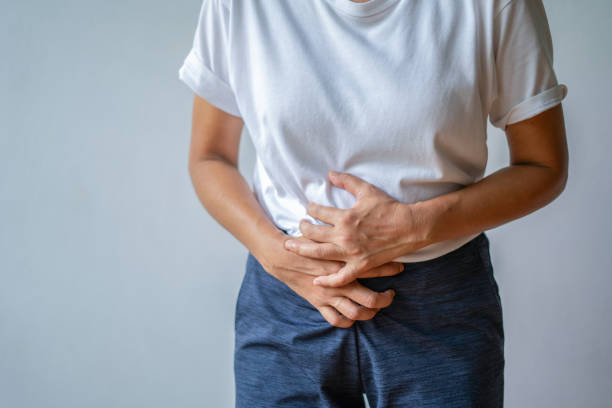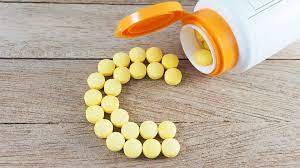A bladder infection, also known as cystitis, is a common urinary tract infection (UTI) that occurs when bacteria enter the bladder. While bladder infections are more prevalent in women, they can affect individuals of any gender and age. Fosfomycin uses to cure Bladder Infections. In this blog post, we’ll delve into the causes, risk factors, and treatment options for bladder infections.
Causes:
Bladder infections typically occur when bacteria, most commonly Escherichia coli (E. coli), enter the urethra and travel up into the bladder. The short length of the female urethra makes women more susceptible to bladder infections. Other causes include:
- Sexual Activity: Sexual intercourse can introduce bacteria into the urethra, increasing the risk of infection.
- Urinary Tract Abnormalities: Any structural abnormalities in the urinary tract can create pockets where bacteria can accumulate.
- Blocked Flow of Urine: Conditions such as kidney stones or an enlarged prostate can obstruct the normal flow of urine, allowing bacteria to multiply.
- Weak Immune System: Individuals with weakened immune systems are more susceptible to infections, including bladder infections.
Risk Factors:
Several factors can increase the likelihood of developing a bladder infection:
- Gender: Women are more prone to bladder infections due to their shorter urethra, which makes it easier for bacteria to reach the bladder.
- Age: Older individuals, especially postmenopausal women, may experience changes in the urinary tract that increase the risk of infection.
- Urinary Catheter Use: Having a urinary catheter in place can introduce bacteria into the bladder.
- Diabetes: People with diabetes have a higher risk of developing bladder infections due to compromised immune function.
- Pregnancy: Changes in the urinary tract during pregnancy can make women more susceptible to infections.
Treatment:
The treatment for bladder infections typically involves a course of antibiotics prescribed by a healthcare professional. It is crucial to complete the entire course of antibiotics even if symptoms improve before completion to ensure the infection is fully eradicated.
In addition to antibiotics (fosfomycin 3gm sachet), individuals with bladder infections can take the following steps to alleviate symptoms and promote recovery:
- Hydration: Drinking plenty of water helps flush bacteria out of the urinary tract.
- Avoiding Irritants: Caffeine, alcohol, and spicy foods can irritate the bladder and worsen symptoms. Avoiding these substances during the infection can be beneficial.
- Warm Compresses: Applying a warm compress to the lower abdomen can help alleviate discomfort.
Prevention:
While not all bladder infections can be prevented, certain measures can reduce the risk of recurrence:
- Hygiene Practices: Wiping from front to back after using the toilet can help prevent the spread of bacteria from the anal area to the urethra.
- Urinate After Intercourse: Emptying the bladder after sexual activity helps flush out any bacteria that may have entered the urethra.
- Stay Hydrated: Drinking an adequate amount of water helps maintain urinary tract health.
- Avoiding Irritants: Steering clear of substances that can irritate the bladder, such as certain foods and drinks, can reduce the risk of infection.
Home remedies for bladder infection
While home remedies can help alleviate the symptoms of a mild bladder infection, it’s important to note that these suggestions are not a substitute for professional medical advice. If you suspect a bladder infection or if symptoms persist, consult a healthcare professional for proper diagnosis and treatment. That being said, here are some home remedies that may provide relief:
- Hydration:
- Drink plenty of water to help flush bacteria out of the urinary tract.
- Unsweetened cranberry juice may also be beneficial, as it contains compounds that can prevent bacteria from adhering to the bladder walls.
- Heat Therapy:
- Applying a heating pad or warm compress to the lower abdomen can help reduce pain and discomfort associated with bladder infections.
- Probiotics:
- Consuming probiotic-rich foods or supplements can help promote the growth of beneficial bacteria in the gut, supporting overall immune function.
- Avoid Irritants:
- Stay away from substances that can irritate the bladder, such as caffeine, alcohol, and spicy foods.
- Urinate Regularly:
- Make sure to empty your bladder regularly and completely to help prevent the accumulation of bacteria.
- Blueberry Juice:
- Blueberries and blueberry juice contain antioxidants that may help prevent and alleviate bladder infections.
- Vitamin C:
- Foods high in vitamin C, such as citrus fruits and bell peppers, may help acidify the urine and inhibit bacterial growth.
- Garlic:
- Garlic has antimicrobial properties and may be included in your diet to support overall immune health.
- Pineapple:
- Bromelain, an enzyme found in pineapple, is known for its anti-inflammatory properties and may help reduce symptoms.
- Epsom Salt Bath:
- Adding Epsom salt to a warm bath may provide relief from discomfort associated with a bladder infection.
It’s essential to emphasize that these home remedies are intended for mild cases of bladder infections and may help manage symptoms. However, seeking professional medical advice is crucial for a proper diagnosis and to determine the most appropriate course of treatment. If you experience severe symptoms or if the infection persists, consult with a healthcare provider promptly.
What dose doctor says about bladder infection
A doctor addressing a bladder infection typically emphasizes the importance of prompt diagnosis and treatment to alleviate discomfort and prevent complications. Upon examination, the doctor may explain that a bladder infection, also known as cystitis, results from the invasion of bacteria into the bladder, leading to inflammation. Symptoms often include a frequent urge to urinate, pain or burning during urination, and cloudy or strong-smelling urine.
The doctor may stress the significance of completing the prescribed course of antibiotics to eradicate the bacteria causing the infection. They might highlight the role of staying well-hydrated in flushing out bacteria and recommend measures to alleviate symptoms, such as using a heating pad for discomfort. Additionally, lifestyle changes like avoiding irritants such as caffeine and alcohol may be suggested to promote bladder health.
The doctor may discuss the potential for recurrent infections, especially in individuals with certain risk factors like a weakened immune system or structural abnormalities in the urinary tract. They may advise preventive strategies, such as practicing good hygiene, emptying the bladder regularly, and urinating after sexual activity.
Overall, the doctor’s guidance revolves around comprehensive management, combining medication, lifestyle adjustments, and preventive measures to ensure effective treatment and reduce the likelihood of recurrent bladder infections.
Conclusion:
Bladder infections are common, but with prompt diagnosis and appropriate treatment, they can be effectively managed. Understanding the causes, risk factors, and treatment options empowers individuals to take proactive steps in preventing and addressing bladder infections. If symptoms persist or worsen, seeking medical attention is crucial for a proper diagnosis and tailored treatment plan.




